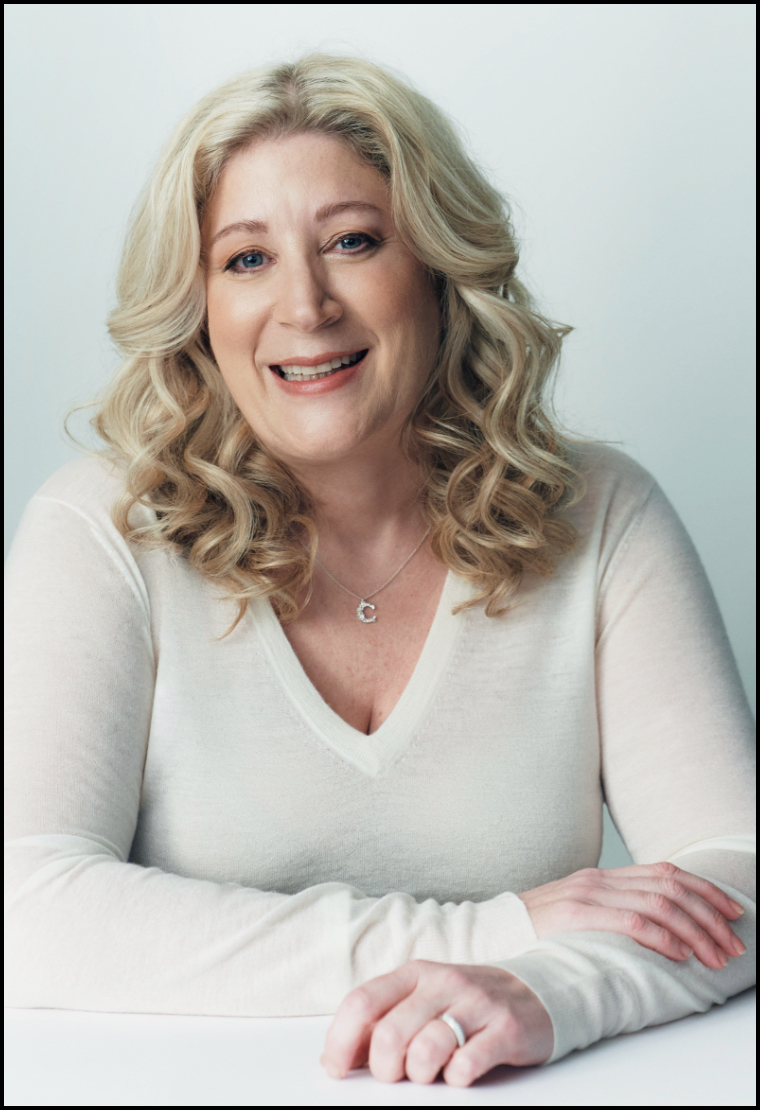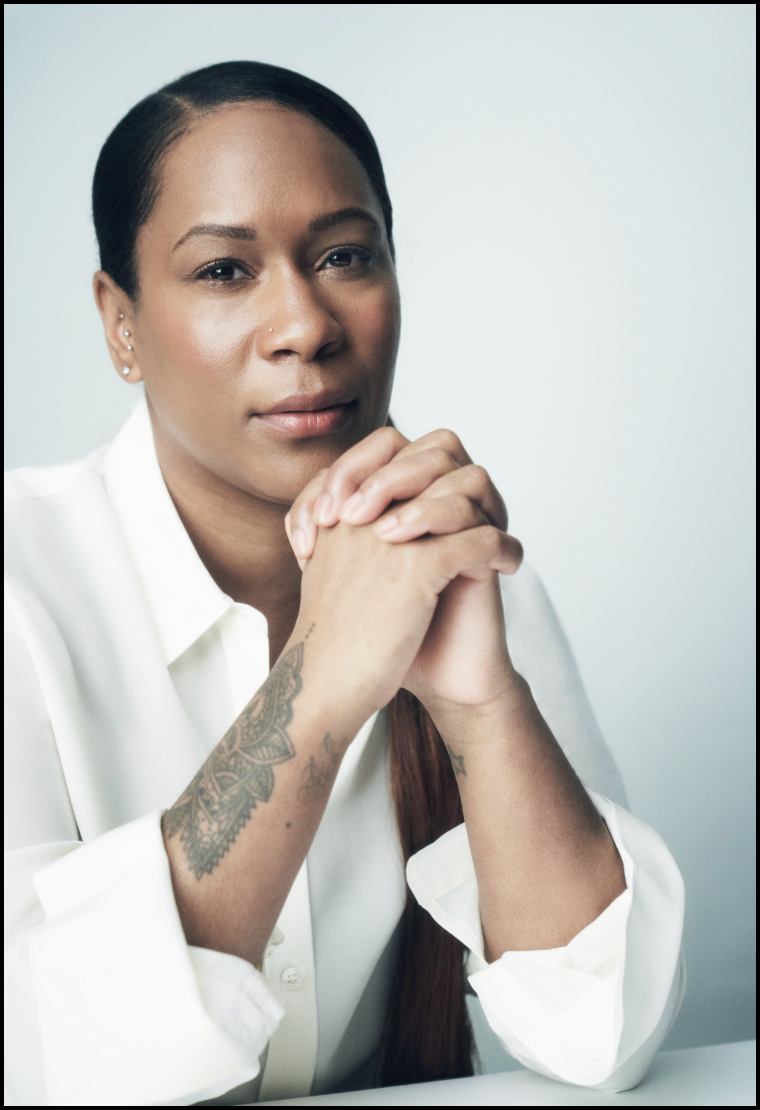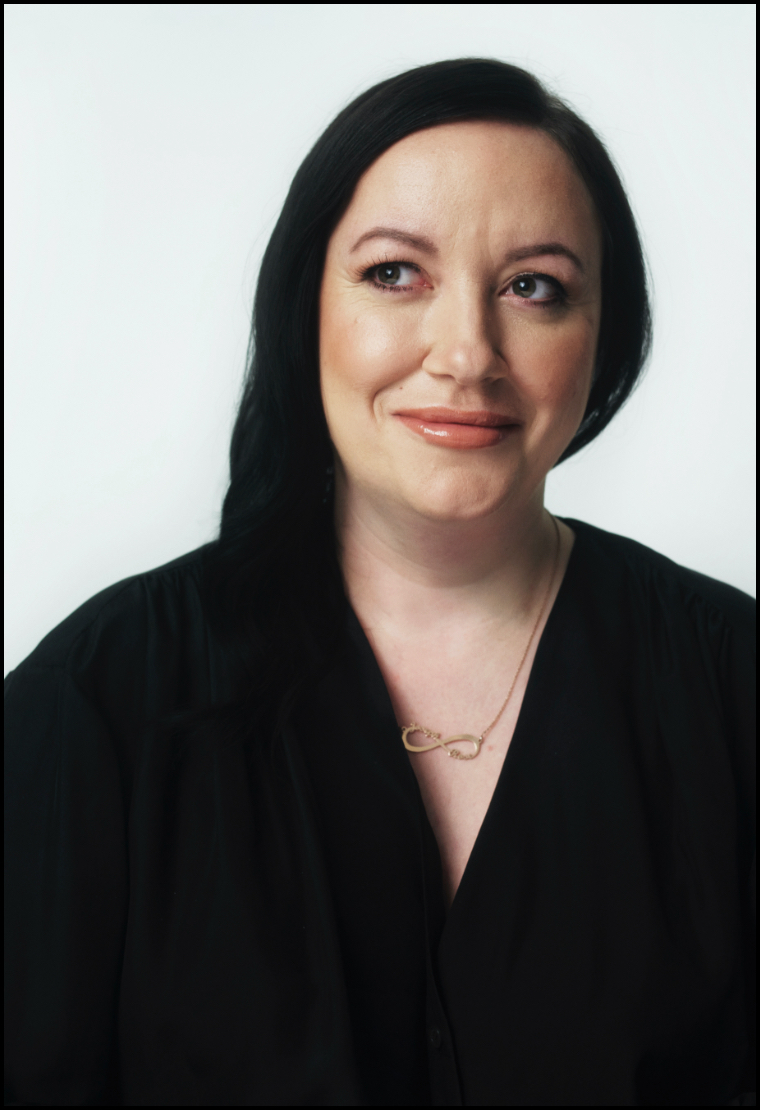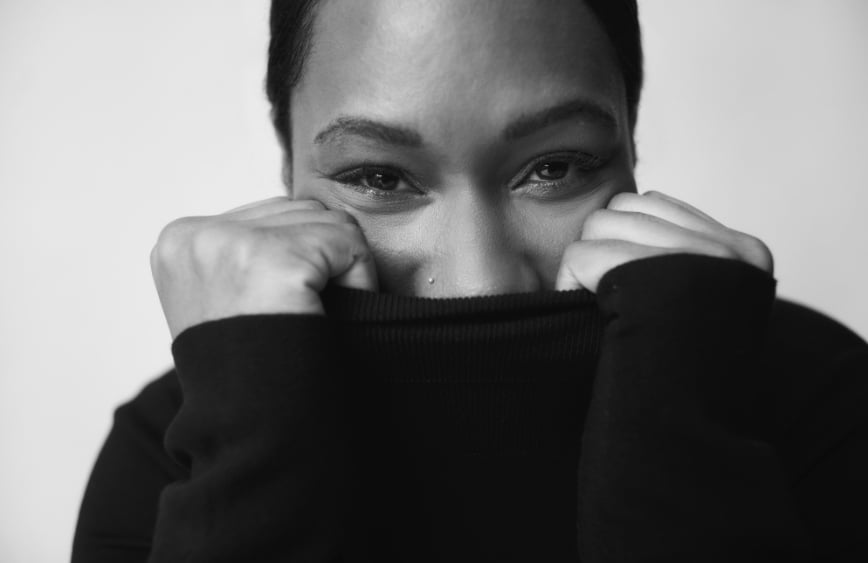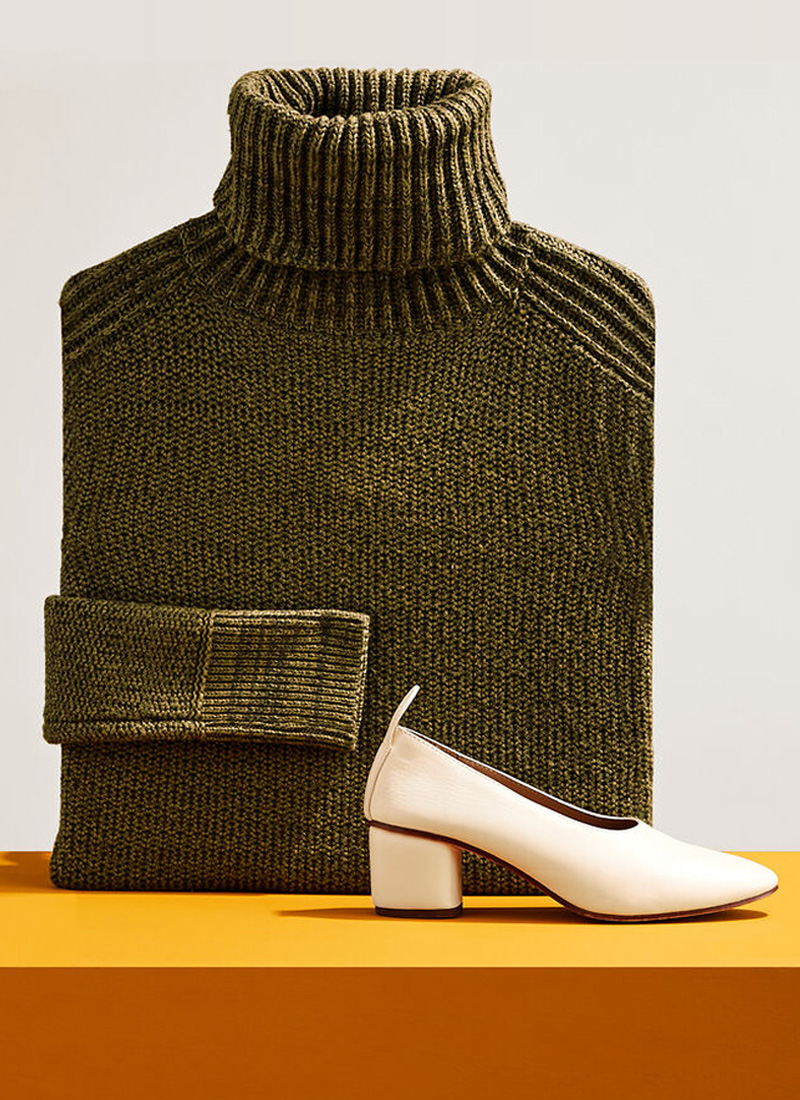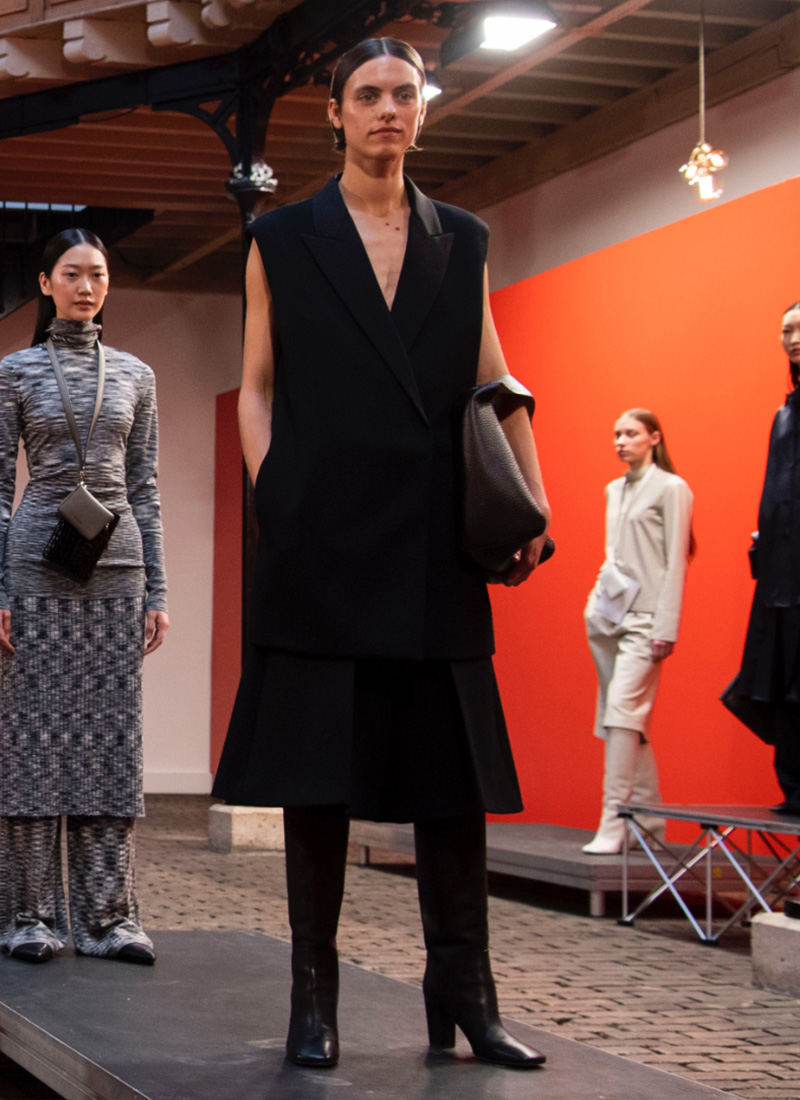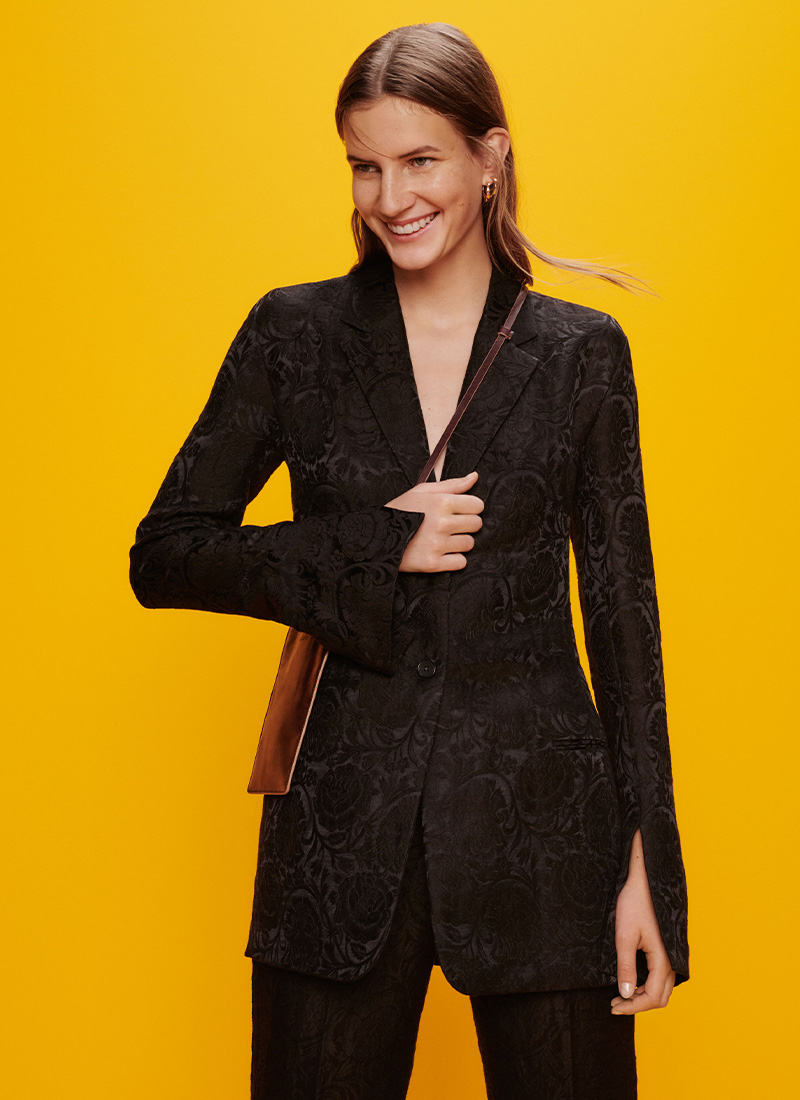The Portrait Series:
International Women’s Day
In support of International Women’s day 2021, JOSEPH is choosing to celebrate with a project that amplifies female voices and highlights the unique challenges that women face each and every day.
In a rare portrait and interview series, we are offering our platform over to three exceptional unsung heroes from a variety of female-centered causes, all who have dedicated their lives to lifting other women. Each has their own lived experience and a personal story to tell, and in their own words we look to celebrate female achievements and raise awareness of the work they do to make the world a safer, more supportive space for all women.
2021 will be a challenging year for the charity sector, with independent causes needing more support than ever before. The team who worked on the project have donated their fees which JOSEPH has matched and doubled. The total donation has been split equally between the three charities, to aid their crucial efforts to support vulnerable women in their time of need.
Portraits: Alex Board | Hair & Make Up: Jolanda Coetzer | Words: Camilla Hunt
Charlotte Kneer is the CEO of Reigate and Banstead Women’s Aid refuge in Surrey, a small independent charity dedicated to changing the lives of women and children fleeing domestic abuse. Founded in 1984, it has offered safety and freedom for around 2000 women and their children by providing a safe space, therapeutic services and the confidence and coaching needed to rebuild their lives after trauma. A domestic abuse survivor whose own violent partner was jailed for seven years, Charlotte has dedicated the last 11 years to raising the profile of RBWA, challenging government pitfalls and increasing the accessibility of space and services for women seeking refuge. Every donation received will go towards providing the standard of service these women and children deserve, from the transport to escape to care packages, daily provisions and on-going mental support.
The theme for this year’s IWD is #ChooseToChallenge. What are the most significant challenges you have felt as a woman?
I’m a survivor of domestic abuse, something where women are statistically more likely to be victims. Surviving the court and criminal process were a personal challenge, as was dealing with people’s attitudes towards me as woman - victim blaming. Men can be held to different standards with domestic abuse, as they are societally, receiving sympathy where a woman may be asked, “Why did you put up with that?”. I think it’s one of the reasons that I work with women that have suffered domestic abuse, because I understand and want to challenge those attitudes and change the way society views it.
How have you chosen to challenge them?
There is a Toni Morrison quote that I live by, which is ‘The function of freedom is to free somebody else.’ I appreciate my own freedom so much that I want other women to experience that. That’s why I’ve been working in refuges for 11 years now, having started out myself as a victim.
I was working in recruitment, earning a lot of money even, but realised it wasn’t what I wanted to do anymore. I started working at the refuge, and quickly realised that I was still under my ex-husband’s control because of his contact with my children. One weekend, after my ex-husband threatened to kill me again, I thought, ’You know what, I've had enough.’ With the support of the people at the refuge, I went to the police and he eventually received a 7 year sentence. In many ways I went into the role thinking I would help other women, but actually working there really helped me come out the other side. I fundraise all psychotherapists to work with the women and the older children to provide daily support. The families also receive a caseworker to work with them, who will just put their arms around them and give them a hug if they need it or assist with practical stuff, anything from criminal justice and family court to any immigration issues, housing, health, education, employment. It really is absolutely everything.
"The strength it takes to leave, nobody really understands that. I appreciate my own freedom so much, that I want other women to experience that."
How has lockdown challenged you or your charity?
I think I will always reflect back on this period of the pandemic in relation to domestic abuse, because I remember thinking, ‘Oh, my God, these women and children are going to be stuck with an abuser.’ Going into lockdown we had 4 women for every place in the refuge, now it is 9. Fleeing domestic abuse is a lot like going into witness protection. You literally just wake up one day, get as many things as you can scrape together in a carrier bag and you run for your life basically. We've had women coming in the middle of the night in their pyjamas, the kids give up their school, their friends, their toys, and the women give up jobs and their whole life, escaping when they can. We’ve been helped by the Rail to Refuge scheme throughout the pandemic, so women have the ability to get on a train and get to a refuge for free.
Why is having a day dedicated to celebrating female achievements so important?
I love any day that women are lifting other women. But it’s important because we haven't achieved equality and we need a day to recognise the fact that women are still oppressed - there are so many horrific things still happening to women in so many countries. It’s celebrating the achievements of women who, against all the odds, are doing amazing things. In a way, I'll be quite happy if the day ever came that we didn't need an International Women's Day but we still have a long way to go.
What is your biggest achievement?
Lockdown has been one of the most stressful employment periods, but when I look back on my life, it will be one of the things I'm most proud of - it nearly killed me! So very early on, I came up with an idea about creating women's refuge spaces to cope with the avalanche of new women needing support and space. Part of the problem is always funding, but I couldn’t just sit back. At the beginning I started speaking to government and the local authority and suggested the idea of creating additional space and lo and behold, within weeks they offered us a huge disused building. Within 6 weeks we had it up and running and so we were able to welcome new families in the first lock down. I just got the go ahead again to expand, so we're going to expand by a further 11 families, which means we're creating a lot of staff, increasing our presence and creating more space for those in need.
What are the achievements you celebrate on a daily basis?
My daily wins are my children and my relationship. When you have suffered severe domestic abuse, it's very difficult to get into a relationship again so I am grateful for the beautiful relationship that I have with my partner. It took me a very long time to find somebody - 17 years in fact. Waking up and being grateful for the life you lead in comparison to the life you once thought you were going to have is something I celebrate daily. I'm living my dream life, and I have a job that I love and am passionate about. How many people can say that?
Who are the women who challenge and inspire you?
It would be my team at the refuges - they fight so hard for other women - and the women themselves that are leaving the abuse. The strength it takes to leave, nobody really understands that.
What advice would you give to a younger version of yourself?
Be authentic. I was always trying to please, partly because of being in an abusive relationship, but also trying to be the right person for someone else. I’ve learnt in life that not everyone is going to like you, and I realised I don't want to make them. Also, don't give yourself such a hard time - I think we all would say that to our younger self.
What are the emerging challenges for women that have caught your attention?
Social media can be so powerful in the right way but it can be so powerful in the wrong way as well. I worry so much about sexual images and, girls being encouraged to send nudes and that kind of thing. We’ve made so much progress but it would be so awful if that progress was rolled back because there's another wave of acceptability around sexually violent language and peer pressure. I think when you're young you just don't realise that you have the right to say no, this is my body and I don't have to share it with you. My girls are 20 and 21 and I had conversations with them very early on in their lives teaching them how to say no.
How best can people challenge bias in their everyday lives?
One of the phrases that I live by is ‘one person can make a difference’. Don't wait for somebody else to deal with that. If you hear something that is misogynistic, a horrible joke for example, stand up and say that you don't find it funny. My favourite people are those who aren’t afraid to stand up in a room and make people uncomfortable. It’s really important to break that cycle, not just for women but children as well.
We are always campaigning for early education - there is just not enough in school curriculums about healthy relationships. It's quite frightening how young girls think it’s acceptable in a relationship for a boyfriend to be jealous or controlling. A lot of children that have been part of a domestic abuse relationship unfortunately could go on to become victims themselves - or even perpetrators.
When Leanne Pero was diagnosed with breast cancer at just 30 years old, she became aware of the lack of cancer support for BAME women and the lower diagnosis rates often associated with myths and taboos within their communities. Through The Leanne Pero Foundation, she created the Black Women Rising project in 2017 to offer vital help, support and visibility to cancer patients. The heart of the project lies in its monthly peer to peer support groups to educate, inspire and connect BAME women with one another to share their stories without fear or shame. Every donation received allows for the continuation of these necessary services and the creation of new, sustained content to empower sufferers and survivors throughout their cancer journey.
The theme for this year’s IWD is #ChooseToChallenge. What are the most significant challenges you have felt as a woman?
There have been three significant big challenges for me to personally overcome. First and foremost, I was a child sexual abuse victim at a really young age, at 13. When I came out and told people what happened, I went through a really difficult transitional period and had no choice but to become an adult. It took extensive counselling and therapy to come out of that, something I later found myself in due to depression following the breakup with my childhood sweetheart. I learned so much in that time, but 3 years later I found myself being diagnosed with cancer at 30 years old.
How have you chosen to challenge them?
For me, with my cancer journey, I felt really isolated. One of the things that I realised when I got diagnosed was that there weren’t any examples of young black women going through cancer- or any young people at all. There was no one I could really relate to - no girls on the literature, online information or at the hospital support group looked like me. So as I was nearing the end of my cancer journey, which was difficult to say the least, it was the one thing I wanted to talk about. I began to blog online about my cancer experience as a black woman, and I was quite astounded by the amount of women that got in touch.
It made me look into some of the stigmas that are surrounding people from the BAME community, and why we're isolated and going through these cancer experiences alone. On one hand, you've got this kind of lack of awareness within the black community around cancer and no visibility within media campaigns. But then on the other side, you've got really unhelpful myths and taboos deep rooted within black and the Asian culture that are really unhelpful. When it comes to chronic illness like cancer, we’re told that if we pray enough, you will be cured and that perhaps we’re to blame. My friend’s Auntie told her to put orange peel underneath her pillow for 90 days to get rid of cancer. People are not going to go and get checked, and it’s leading to some of the statistics that we have now: black women, for example, are more susceptible to die from cancer than our white counterparts. It's a fact. So, for me, it was about creating a project to challenge those stigmas, empower people for a cancer diagnosis, but also give them the resources that they need to do that because no one understands what's going on in our culture apart from us.
"I think everyone has their purpose in life, and for me helping and serving the community is where I measure my success."
How has lockdown challenged you or your charity?
Honest truth, when we came into lockdown in March 2020, I had got to the point where it had become so challenging for me mentally that I was going to close the charity down. Then, when I moved the monthly support group I run online, we had more people than ever before. I’ll never forget it! I put up 25 slots and they went instantly and people were like, we need, need, need more support. People's mental health took a massive battering, and cancer sufferers were worrying about going into hospital; about Covid. Cancer treatment and surgery started to be cancelled, and we lost 3 women who were very important members of our congregation. We have had people have cancer recurrences due to treatments and drugs being stopped. I've got one young girl with throat cancer who was due to have an operation in August and still hasn't had it now. This shows the strain. We’re now running more support groups on a monthly basis and have upped our resources including a podcast and a magazine. The Black Lives Matter movement that found revived purpose during lockdown helped with funding and support as people started to pay attention and were more open to listening to our stories. Now it's coming to the second year and we were asking people for support, we are seeing it dwindle, and even negative racial trolling. We’re having to rely a lot more on government support and grants, which are at capacity right now so even small donations are crucial to us. For every couple of hundred pounds that we get, we can run support groups for 6 months or more or invest in consistent projects such as the podcast.
Why is having a day dedicated to celebrating female achievements so important?
I think of International Women's Day in the same way as Black History Month in the sense that it's important to look and reflect about how far we've come. I started my other business, a dance company, 20 years ago and was being spoken down to in a sexist way by men in high positions whilst seeking funding. When I'm trying to fundraise now, it's crazy how things have changed; how it’s no longer just men sitting around in suits. It's women now that I'm talking to - women-run organisations with funding pots that women have created and women have used their initiative to create. Seeing that, it reminds me a bit of my work in terms of what I do around racial inequality too, and so celebrating women for just one day and the achievements of women and all the things that we have to go through, I fully support. I have no time for anybody that says otherwise!
What is your biggest achievement?
I think overcoming trauma is my biggest celebration. I think I've been through so MANY different traumatic events and to still be able to stand smiling, helping others is something I don't take for granted. I give thanks every day, that I have gone through that and am able to use those experiences to help others. I think everyone has their purpose in life, and for me helping and serving the community is where I measure my success.
What are the achievements you celebrate on a daily basis?
That question is something you ask yourself a lot when you've recovered from cancer. One of my small wins was convincing myself that my cancer wasn't going to come back and I wasn't going to die. Getting through a day successfully knowing that I'm going to survive cancer. These days, it's going for a walk and making sure I get my 5,000 steps in. Or making sure I finish my day at 5pm to stop myself from working all day and night to chill out. That is a small win for me in lockdown to makes sure my mental health stays where it needs to be.
Who are the women who challenge and inspire you?
Definitely my grandma - she was just an amazingly strong woman. She was white and adopted a very mixed race family in the 1960s at a time when racism was absolutely rife. She came across so much opposition, but she was just so strong right until the end when she passed away, she just really looked after all of us. I look to her for guidance now, like a little angel looking down on me. I would also say my mentor, Debbie Moore, who is the owner of Pineapple Dance Studios, she took me under her wing when I was in my 20s. She showed me how to run a successful dance business and we became great friends. She’s almost like a fairy godmother to me.
What advice would you give to a younger version of yourself?
The advice I'd give to a younger version of myself would be not to worry so much about life and actually just learn to relax a little bit - everything always works out for the best. I've spent many years always worrying what's coming next and have actually learned to be a little bit more present.
What are the emerging challenges for women that have caught your attention?
Social media can be very dangerous, particularly with misinformation. A lot of the women I work with are very curious about the Internet, and turn to it to try and blog about their experiences because they see other people doing it. But sometimes they're unknowingly exposing themselves into a world that, if you don't have much experience in, can leave you feeling quite worthless. There's always a dark side, and support is not guaranteed. In fact, I recently questioned some of the youngest people in my support group and asked them, when it comes to mental health, to put their hand up if they struggle mentally with social media and the expectation to be something that they’re not. There was not one hand that didn't go up.
How best can people challenge bias in their everyday lives?
Be open, honest and listen. Particularly with setting up a Black organisation, it has helped when people admit that they don't understand the experiences we’re going through, but they’re here to listen and to be educated. Just having an open mind and listening is key.
Annie Belasco is the Head of Charity of PANDAS Foundation UK, a charity focused on providing peer to peer support for parents who have or are coping with perinatal mental illness. Having used PANDAS dedicated free helpline and online services for her own pregnancy anxieties in the past, Annie now spearheads fundraising and operations to offer ongoing empathy, support, and education to those directly and indirectly affected by perinatal mental illness. Every donation received contributes towards essential running of services, from insurance through to the extensive training needed to ensure all teams are equipped with the latest knowledge to effectively help every parent struggling with mental health.
The theme for this year’s IWD is #ChooseToChallenge. What are the most significant challenges you have felt as a woman?
I fell pregnant not long after recovering from breast cancer at a young age, and experienced horrendous prenatal anxiety bordering on depression. I was afraid to leave the house because I thought something would happen to me and I would lose my baby. It puts the fear into you when you are taking on one of the most scrutinised roles that any woman can have. But to then not enjoy your pregnancy? In my experience, it is usually frowned upon.
I googled one night looking for support, and there was nothing out there. It's a real shame that we don’t think about mental health in the same way as physical health, there are so many grey areas and questions. But that’s when I happened to see an advert for the Pandas helpline. I called them and they just listened. It was incredible to find a charity that really understands not just post-natal depression but also birth trauma, maternal OCD, psychosis, low mood and anxiety - the full spectrum of perinatal mental illness that is often undervalued.
How have you chosen to challenge them?
I was really drawn to the charity, and started blogging for them before volunteering with strategy and building an amazing team of women using my HR and people background. I didn’t think I was looking for a job, but I came on board when the founder left. We’re currently working on two areas of challenge, starting with education. Raising awareness of perinatal mental illness to parents and their network, and what support is out there. We also have to then challenge prehistoric attitudes towards women’s health. The term “baby blues”, for example, is hideous - it's a sexist, outdated blanket term for women that feel a bit down. We challenge ignorance that isn't necessarily the person's fault but is very undermining of something that can be a lot more sinister. We then educate the media, our service users and teams to the severity of perinatal mental illness, because we have to remember that suicide is still the number one cause of death within the first maternal year, and more so for men. Men can have postnatal depression, too.
Our second challenge is proving how vital and important our services are. We're classed as a relatively small charity, but have 72 volunteers and 70 on a waiting list. The impact of our charity being the only leading perinatal mental health charity in the UK is huge - we are the first port of call - but proving our worth is difficult. We rely on donations to keep going.
"My inspiration every single day, are the women that are supporting other women. Because when women come together, amazing things can happen, if we are aligned in our values."
Why is having a day dedicated to celebrating female achievements so important?
There should always be the praise and recognition for everyone. I went to an all girls school, so I’ve always been about embracing the IWD values and empowering women from all demographics and of all ability. But also, I think it's important to challenge that stigma around women's roles in society.
What is your biggest achievement?
Every achievement for me is about risk and having the confidence to achieve it. I've been through some massive trauma, from overcoming breast cancer to having two babies when I was told I wasn’t able to. But our charity tripling in size, expansion and income would be my greatest achievement, because I know that we are reaching as many people as we can. It’s about driving a shift in attitudes towards mental health, particularly in women, and the general public and media taking notice of how important and critical these issues are for women. We help save lives.
What are the achievements you celebrate on a daily basis?
I’m a positive and sickly kind of happy person, because I do genuinely wake up every day and make myself feel gratitude for the things that I have as you just don't know what anyone else is suffering or going through. I don't think you can undermine any achievement. For me, yesterday my daily achievement was assembling furniture, whilst raising children in lockdown
Who are the women who challenge and inspire you?
My inspiration every single day is all the women that are supporting other women, because when women come together, amazing things can happen if we're aligned in our values. My heroes are the service users that come to us and the people who provide that service. Volunteers having a conversation with a woman or not can literally save a life. I think the service users are amazing, brave, courageous, modest, humble and strong when they feel exactly the opposite of all those things.
What advice would you give to a younger version of yourself?
I think my advice would be to treat your mental health in absolute alignment to your physical health. I was always asked ‘what do you want to be when you grow up?’ and it’s so negative. I was 25 when I was diagnosed with breast cancer. I drank alcohol. I smoked. I didn't get enough sleep because I worked too hard. I just wasn't putting myself first, which had a really bad effect on my mental health as well. I think that young women should be allowed to grow into what suits them rather than an untold amount of pressure to have this label before they're even in the first year of school. It’s important not to shoehorn your children into being something that they don't want to be and allowing them to be themselves, putting their mental health first.
What are the emerging challenges for women that have caught your attention?
There should be more education in schools tailored around life skills, real life scenarios and situations to empower and give women, girls, teenagers the confidence they need to be able to wake up and say, I can do this. I think celebrity influences can be great, but I also think they can be a dangerous tool for brainwashing younger generations into believing that they need to look, feel or act in a certain way or have these replicated lifestyles that just don't offer happiness for them.
How has lockdown challenged you or your charity?
We've seen such an incredible rise in our services since late March last year. Demand for our helpline has gone up by 240% so we’re snowed under. There was a huge amount of panic amongst every parent we worked with, shifting from specific perinatal mental illness into generalised anxiety about practical things like covid injections and breastfeeding. I see the pandemic as a positive, in that it has brought us closer together - we all now have a deep understanding of isolation and loneliness and anxiety, which are the three key triggers for any parent.
Finances have been not as imperative until now. We have such a high media profile, but that's not recognised from a government or funders perspective.
How best can people challenge bias in their everyday lives?
As a woman, setting boundaries is really important - I don’t think that we're taught to say no enough. As an employer, promote flexible working for women and do your best to address the gender pay gap and things like that, because there is a fundamental need for there to be recognition of women who raise children and a work environment and salary that supports that.
